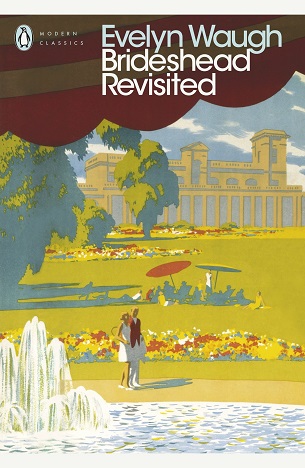
Read it for the beautiful writing, but stay for the subtle Catholicism. In spite of the dysfunction surrounding the lives of the Flyte children, they all deeply believe—though reluctant to articulate it—that the sacraments are vital (e.g., Anointing of the Sick for Lord Marchmain). They are all drawn back into the life of Christ almost against their wills, and purely through this influx of grace.
Waugh’s own words nicely summarizes the dynamic at play:
The Roman Catholic Church has the unique power of keeping remote control over human souls which have once been part of her. G.K. Chesterton has compared this to the fisherman’s line, which allows the fish the illusion of free play in the water and yet has him by the hook; in his own time the fisherman by a “twitch upon the thread” draws the fish to land.
As friends and family leave the Church, either altogether and abruptly or gradually and by becoming lukewarm, I pray that Catholicism is as inescapable as it is for the Flytes. Fr. Bill Neenan, former academic veep of Boston College, once told me over dinner that he didn’t worry so much about young people straying from the Church; that when they eventually marry and have children they find their way back. But the Pew numbers suggest that’s happening less frequently than maybe it once did.
Bishop Barron argues that the conversions happen, maybe for Charles especially, because of the ordering of the transcendentals: moving from the beautiful (Brideshead in all its architectural grandeur) to the good (the family) to the true (the Catholic faith); that is arguably the best evangelistic formula.
— ᴘ. ᴍ. ʙ.
← back to books | tweet | cast